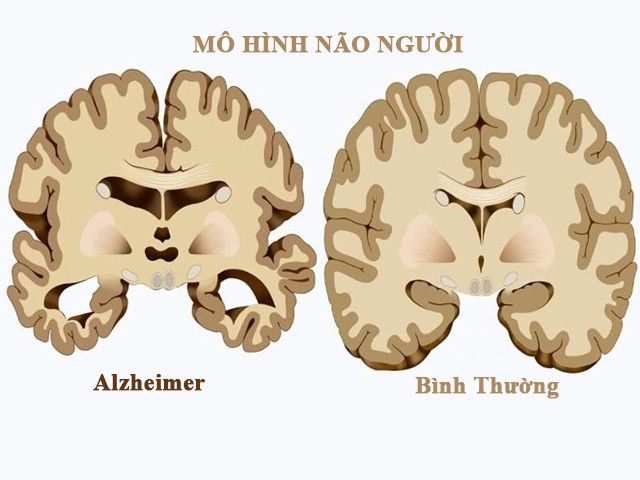Research by Griffith University experts suggests that the habit of picking your nose can cause Alzheimer's disease, a brain disease that affects memory, thinking and behavior.
On October 29, a study published in the journal Scientific Reports by experts from Griffith University said that the habit of nose picking can cause infection of the olfactory nerve, leading to Alzheimer's disease.
The study found that bacteria called Chlamydia pneumoniae (a dangerous bacteria) can use the long nerve between the nasal cavity and the brain as a route to invade the central nervous system. Brain cells then react by a harmful process that accumulates amyloid beta protein, a protein that causes Alzheimer's disease and other dementias.

Scientists believe that the habit of picking your nose can cause infection of the olfactory nerve, leading to Alzheimer's disease.
“We are the first to demonstrate that Chlamydia pneumoniae can go straight up the nose and into the brain, causing diseases like Alzheimer’s. The study, conducted in mice, provides evidence that this can happen in humans,” said Professor James St John, Director of the Clem Jones Centre for Stem Cell and Neurobiology.
According to experts, the olfactory nerve in the nose is in direct contact with the air, providing a short path to the brain, passing through the blood-brain barrier. The virus uses this path to sniff and easily penetrate the brain. The team of experts has planned the next phase of the study, to prove the risk of causing disease in humans. Professor John recommends that people should not pick their nose or pluck nose hairs, to avoid damaging the inside of the nose. According to him, causing the mucosal layer to peel off can increase the number of bacteria entering the brain.

Alzheimer's disease is the cause of dementia
Alzheimer’s disease is a brain disease that affects memory, thinking, and behavior. It is not a normal aging or neurological disease. It tends to get worse and has a negative impact on daily activities, memory, language, and thinking.
Alzheimer's disease affects not only the person with the disease but also the caregiver. Caring for someone with Alzheimer's is often difficult and many family members or friends who help care for the patient experience extreme emotional stress.
Alzheimer's disease is a progressive disease with no cure. The goal of treatment is to slow the progression of the disease and improve quality of life, limiting the negative effects of the disease on life.
According to Health and Life